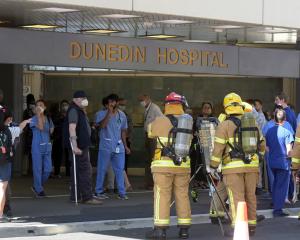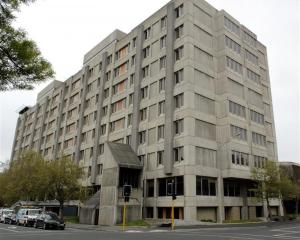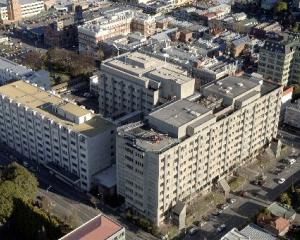Dr Caroline Collins (46) said extra registrar and specialist shifts had made the department safer while recruitment was under way for three new specialists. By mid-year the ED should have 12 specialists (10.9 full-time equivalent) and a healthy complement of registrars.
The former GP feels ''hopeful'' about the department's future after it convinced the Southern District Health Board it needed more staff.
She puts that down to ''the fact that we just persistently kept raising concerns about clinical safety. It's about patient safety.
''It was pretty unsafe at times.
''I was just terrified someone was going to die. It was very stressful.''
Strong goodwill and collegiality meant things mostly ran smoothly, while specialists from other departments had been called in at very busy times. There was still a long way to go in terms of reducing patient waiting times, but this had improved.
She was pleased that there was growing acceptance that ED waiting times were often because of hospital-wide processes rather than the department itself. She supports the six-hour time target for treating ED patients, saying it puts focus on safety and speeding up processes.
She believes she is the first woman to lead the department. She started earlier this month, nearly a year after the leadership role was vacated as a consequence of the row over staffing numbers.
Her leadership style was different from her predecessors, who both still worked in ED.
She was strong on communication and collaboration, and this helped her draw on the considerable skill and experience of previous leaders Dr John Chambers and Dr Tim Kerruish.
Dr Collins qualified as an emergency medicine specialist in 2009. She moved to New Zealand from Britain, having found the huge working hours of a GP ''pretty horrific''. Dr Collins, who is from a rural area in the north of England, said the large overlap between general practice and emergency medicine made the transition reasonably straightforward.
After a year managing a small hospital in Taumarunui, she applied for registrar positions in emergency medicine, and was employed by Dunedin Hospital in 2001.
While most of her training as an ED specialist was in Dunedin, she spent 18 months of it in Auckland.
She was not sure yet how much of her week she would be able to dedicate to her leadership role, at least 0.5 full-time equivalent being the formal recommendation of the emergency medicine professional body. This was under consideration, she said.
Being free to attend meetings and form relationships with other departments meant taking time away from the clinical duties. It was also important to have time to speak to department staff, especially as they worked shifts around the clock and it was difficult to get them all together for meetings.
However, she would still be working her share of shifts, including weekends.
The observation unit opened in August had been ''fantastic'' for patients, who otherwise might have been sent home or placed in a corridor. However, the unit had created more demand for nurses, and she was now seeking to increase nursing numbers.








